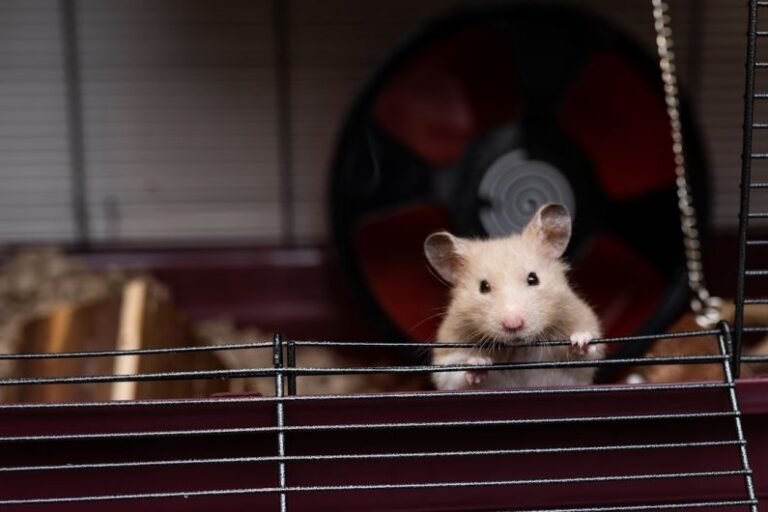
Hamsters are adorable and popular pets that bring joy and companionship to many households. As a responsible hamster owner, it is crucial to ensure that your furry friend is receiving the proper care, including a well-balanced diet. Unfortunately, many hamster owners unknowingly make common dietary mistakes that can impact their pet’s health and well-being. In this article, we will explore some of these common pitfalls and provide guidance on how to avoid them.
Inadequate Variety in Diet
Hamsters, like humans, require a diverse diet to meet their nutritional needs. One of the most common dietary mistakes hamster owners make is feeding their pets the same food every day. While it may be convenient to stick to a single type of hamster food, this can lead to deficiencies in essential nutrients. Hamsters need a combination of pellets, fresh fruits, vegetables, and occasional treats to ensure they are getting a well-rounded diet.
To provide your hamster with a varied diet, consider incorporating different types of vegetables such as carrots, broccoli, and bell peppers. Fruits like apples, bananas, and berries can also be a tasty and nutritious addition to their meals. Additionally, offering occasional treats like sunflower seeds or mealworms can help prevent boredom and provide mental stimulation for your hamster.
Overfeeding or Underfeeding
Finding the right balance when it comes to feeding your hamster can be challenging. Some owners may overfeed their pets, leading to obesity and related health issues. On the other hand, underfeeding can result in malnutrition and stunted growth. It is essential to understand your hamster’s dietary needs based on their age, size, and activity level.
A good rule of thumb is to provide about one to two tablespoons of hamster food per day, along with a small amount of fresh fruits and vegetables. Monitor your hamster’s weight and adjust their portions accordingly to ensure they are maintaining a healthy weight. Remember, hamsters are prone to hoarding food, so it is crucial to check their food stash regularly and remove any uneaten or spoiled items.
Ignoring Hydration Needs
Just like any other animal, hamsters require access to clean and fresh water at all times. One common mistake hamster owners make is neglecting their pet’s hydration needs. Some owners may use water bottles that leak or get clogged, leading to inadequate water intake for their hamsters. Ensure that your hamster has a functional water bottle or water bowl that is cleaned and refilled daily.
Dehydration can lead to serious health issues for hamsters, so it is crucial to monitor their water consumption closely. If you notice that your hamster is not drinking as much as usual, consider offering water-rich foods like cucumbers or switching to a different type of water dispenser that may be more appealing to your pet.
Inconsistent Feeding Schedule
Hamsters thrive on routine and consistency, especially when it comes to their feeding schedule. One common mistake that hamster owners make is feeding their pets at irregular times or skipping meals altogether. Establishing a consistent feeding schedule can help regulate your hamster’s metabolism and prevent overeating or undereating.
Try to feed your hamster at the same time each day, preferably in the evening when they are most active. This routine will help your hamster anticipate meal times and reduce stress or anxiety associated with inconsistent feeding patterns. Remember to remove any uneaten food from the previous meal to prevent spoilage and ensure that your hamster is getting fresh and nutritious meals every day.
Neglecting Dental Health
Hamsters have constantly growing teeth that require proper care to prevent overgrowth and dental issues. One common mistake hamster owners make is neglecting their pet’s dental health by not providing adequate chew toys or hard foods to wear down their teeth. Without proper chewing opportunities, hamsters’ teeth can become overgrown, leading to pain, difficulty eating, and other health problems.
To promote your hamster’s dental health, offer chew toys made of safe materials like wood or cardboard. Additionally, incorporating hard foods like nuts or seeds into their diet can help naturally wear down their teeth. Regularly check your hamster’s teeth for signs of overgrowth or malocclusion and consult a veterinarian if you notice any abnormalities.
Conclusion: Ensuring Your Hamster’s Well-Being through Proper Nutrition
Proper nutrition is a fundamental aspect of caring for your hamster and ensuring their overall well-being. By avoiding common dietary mistakes such as inadequate variety in diet, overfeeding or underfeeding, ignoring hydration needs, inconsistent feeding schedules, and neglecting dental health, you can help your furry friend live a happy and healthy life. Remember to consult with a veterinarian or exotic pet specialist for personalized advice on your hamster’s dietary needs and make adjustments as needed to support their optimal health. By prioritizing your hamster’s nutrition and avoiding these common pitfalls, you can enjoy a fulfilling and enriching relationship with your beloved pet for years to come.





